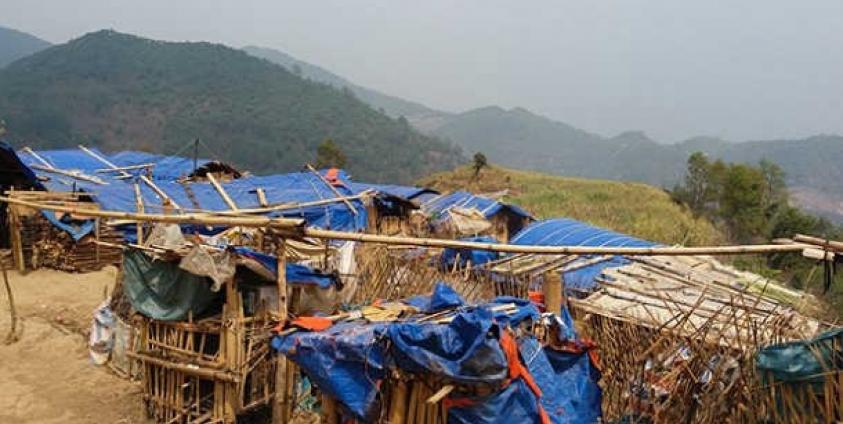A new report released recently by the Shan Human Rights Foundation (SHRF) alleges that an ongoing mobilization of army troops in northern Shan State along the border with China in Kokang has made it “impossible for tens of thousands of Kokang refugees to return home”.
The outbreak of heavy fighting between Kokang forces from the Myanmar National Democratic Alliance Army (MNDAA) and Burmese government troops in February of last year led to an estimated 100,000 refugees fleeting from the homes, many of the refugee arrived in China. “Now continuing persecution by Burmese troops camped near their villages is preventing many of these refugees from returning home,” concludes the SHRF report released on 22 April.
“No one can go back to our village now. The Burma Army has blocked the road to our village. They have also laid land mines at the border to prevent people crossing over”, said a 61 year old refugee farmer from Shung Diao Ai interviewed by SHRF. According to him three other refugees returned to his village to check on their possessions in March of last year and they were never seen again.
SHRF interviewed refugees from more than 20 villages in Laogai and Konkyan townships, many of whom described their villages as completely “deserted or with only a few inhabitants temporarily staying to look after their farms”. According to SHRF the interviews indicate that there is a “deliberate strategy by the Burma Army to depopulate the eastern border regions of the entire Kokang self administered zone.”
Another refugees SHRF interviewed also described other serious human rights abuses including rape being carried out by Burma army soldiers on Kokang refugee women who sought to return to their villages last year.
Report: UN Downplays Kokang Refugee Crisis
Citing figures from aid workers, SHRF reports that there are still more than 20,000 Kokang refugees enduring increasingly precarious conditions in China's Yunnan province. A recent report from the UN Office for the Coordination of Humanitarian Affairs (UNOCHA) on Burma's refugee situation released in January estimated that only 4,000 Kokang refugees remain in China, something that doesn't sit well with SHRF who say that the UNOCHA report “downplays the severity of the crisis”.
SHRF's research found that many of the refugees who fled to China are currently “sheltering in makeshift camps just inside the Chinese border, surviving on donations from volunteers and wage labour in nearby farms”. Compounding the crisis, Chinese authorities shut down the official camps last year, according to SHRF. In the report's conclusion the group called on donors and aid agencies “to seek ways to address the urgent humanitarian and protection needs of the refugees sheltering along the Kokang-China border.”







